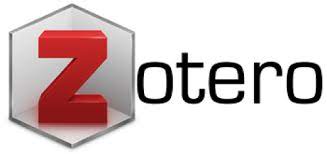Stress Academic Dalam Mengerjakan Tugas Akhir Pada Mahasiswa Perantau: Adakah Pengaruh Self Efficacy Terhadap Stress academic ?
DOI:
https://doi.org/10.33557/jpsyche.v18i1.3190Keywords:
Self efficacy, Stress Academic, Student, Migrants, ThesisAbstract
Academic stress is an individual’s perception of stressors originating from academics and seeing how the individual reacts consisting of physical, behavioral, cognitive and emotional reactions (Gadzella & Masten, 2005). Various factors cause academic stress in students including pressure, conflict, frustration, coercion, and change. This research aims to determine the effect of self efficacy on academic stress in completing final assignments among migrant students at state university (PTN) X in Lampung. The population in this study were students working on final assignments or theses, who came from outside Lampung or from West Sumatra who were residing or studying in Lampung (migrant) totaling 189 students. This research is a quantitative research with a samplingtechnique of 65 students. Data collection techniques use self efficacy and academic stress scales. The data analysis technique used in this research uses statistical methods with the help of IBM SPSS Statistics 25 software. The research results show r=0,669 with p0,000, which means there is a positive and significant relationship between self efficacy and academic stress. Self-efficacy makes an effective contribution of 44,8% to academic stress. Based on the research results, it can be concluded that there is a significant positive influence between self efficacy and academic stress in overseas students who are working on their final assignments at State University (PTN) X in Lampung. This means that the higher the self efficacy, the lower the academic stress behavior, and conversely the lower the self efficacy, the higher the academic stress behavior in overseas students who are working on their final assignments. The effective contribution of the self-efficacy variable is 44,8% to academic stress and the rest is influenced by variables outside this research.
References
Andjarwati, T., Budiarti, E., Susilo, K. E., Yasin, M., & Soemadijo, P. S. (2021). Statistik Deskriptif. Zifatama Jawara.
Az Zahra, S., & Uyun, Z. (2022). Hubungan Antara Dukungan Sosial Dengan Stres Akademik Mahasiswa Selama Perkuliahan Daring. Universitas Muhammadiyah Surakarta.
Bandura, A. (2006). Guide for constructing self-efficacy scales. Self-efficacy beliefs of adolescents, 5(1), 307–337.
Barseli, M., Ifdil, I., & Nikmarijal, N. (2017). Konsep stres akademik siswa. Jurnal konseling dan pendidikan, 5(3), 143–148.
El Akmal, M., Pasaribu, D. L. A., Sinulingga, V., Silitonga, U., Perangin-angin, M. D. S., & Situmorang, M. (2023). Gambaran Self-Efficacy Pelamar Dalam Wawancara Kerja Secara Daring. Cakrawala Repositori IMWI, 6(1), 161–173.
Fachrosi, E. (2012). Perbedaan Stres Akademik Antara Kelompok Siswa Minoritas Dengan Mayoritas Di SMP Wr. Supratman 2 Medan. Alat Ukur Stres Akademik.
Fun, L. F., Mikarsa, H. L., & Putri, D. K. (2023). Gambaran Grit Pada Mahasiswa di Indonesia. Scholaria: Jurnal Pendidikan dan Kebudayaan, 13(3), 240–249.
Gadzella, B. M., Baloglu, M., Masten, W. G., & Wang, Q. (2012). Evaluation of the student life-stress inventory-revised. Journal of Instructional Psychology, 39(2).
Gadzella, B. M., & Masten, W. G. (2005). An analysis of the categories in the student-life stress inventory. American journal of psychological research, 1(1), 1–10.
Hamdi, I., Supraja, M., & Zubaidi, A. (2016). Dinamika Aktualisasi Diri Pemuda Rantau Dan Implikasinya Terhadap Ketahanan Pribadi (Studi Pada Mahasiswa Rantau Asal Sumatera Barat Di Asrama Putri Bundo Kanduang Daerah Istimewa Yogyakarta). Jurnal Ketahanan Nasional, 22(3), 306–320.
Hatiti, K., & Wahyuni, C. (2021). Hubungan Self Efficacy Academic Dengan Social Loafing Pada Kelompok Belajar Mahasiswa. ANFUSINA: Journal of Psychology, 4(2), 103–118.
Hidayat, M. A., Anwar, A., & Hidayah, N. (2017). Pendidikan non formal dalam meningkatkan keterampilan anak jalanan. EDUDEENA: Journal of Islamic Religious Education, 1(1), 31–42.
Khoirunnisa, R. N. (2021). Hubungan antara self-efficacy dengan stres akademik pada mahasiswa yang sedang mengerjakan skripsi di masa pandemi covid-19. Character J Penelit Psikol, 8.
Mamahit, H. C. (2020). Stres akademik mahasiswa aktif angkatan 2018 dan 2019 Universitas Swasta di DKI Jakarta. JKI (Jurnal Konseling Indonesia), 6(1), 6–13.
Nasution, S. A. (2022). Hubungan Antara Self Efficacy dengan Stres Akademik pada Mahasiswa Tingkat Akhir yang Sedang Mengerjakan Skripsi di Fakultas Psikologi Universitas Medan
Area. Universitas Medan Are.
Pratama, U., Amna, N., & Arif, B. (2023). Faktor-Faktor Yang Mempengaruhi Tingkat Stres Akademik Mahasiswa Semester Akhir Di Fakultas Ilmu-Ilmu Kesehatan Universitas Abulyatama. Jurnal Mahasiswa Ilmu Kesehatan, 1(3), 257–268.
Putri, E. R. (2022). Pengaruh dukungan sosial dan efikasi diri terhadap stress akademik mahasiswa yang sedang mengerjakan skripsi. Universitas Islam Negri Maulana Malik Ibrahim.
Rabbani, M. R., & Wahyudi, H. (2023). Pengaruh academic self-efficacy terhadap stress akademik mahasiswa yang sedang mengerjakan skripsi. Bandung Conference Series: Psychology Science, 3(1), 202–211.
Rosdiana, Y., Hastuningtyas, W. R., & Wolla, L. N. (2022). Hubungan Tingkat Stres Akademik Dengan Ide Bunuh Diri Pada Mahasiswa. Fakultas Ilmu Keperawatan Universitas Tribhuwana Tunggadewi.
Santoso, A. (2023). Rumus Slovin: Panacea Masalah Ukuran Sampel? Suksma: Jurnal Psikologi Universitas Sanata Dharma, 4(2), 24–43.
Santoso, S. (2010). Statistik parametrik. Elex Media Komputindo.
Siregar, I. K., & Putri, S. R. (2020). Hubungan self-efficacy dan stres akademik mahasiswa. Consilium: Berkala Kajian Konseling dan Ilmu Keagamaan, 6(2), 91–95.
Sugiyono, D. (2013). Metode penelitian pendidikan pendekatan kuantitatif, kualitatif dan R&D.
Sugiyono, S. (2017). Metode Penelitian Kuantitatif Kualitatif dan R&D. Bandung: Alfabeta. Procrastination And Task Avoidance: Theory, Research and Treatment. New York: Plenum Press, Yudistira P, Chandra.
Widyoyoko, T. D. (2022). Pengaruh self-efficacy terhadap stres akademik pada mahasiswa Fakultas Psikologi Angkatan 2018 Yang Sedang Mengerjakan Tugas Akhir. Universitas Islam Negeri Maulana Malik Ibrahim.
Wilks, S. E. (2008). Resilience amid academic stress: The moderating impact of social support among social work students. Advances in social work, 9(2), 106–125.
Wusqa, N., & Novitayani, S. (2022). Risiko Bunuh Diri pada Mahasiswa Tingkat Akhir. Jurnal Ilmiah Mahasiswa Fakultas Keperawatan, 6(2).
Zulkosky, K. (2009). Self‐efficacy: a concept analysis. Nursing forum, 44(2), 93–102.
Downloads
Published
Issue
Section
License

Jurnal Ilmiah Psyche by http://journal.binadarma.ac.id/index.php/jurnalpsyche is licensed under a Creative Commons Attribution-ShareAlike 4.0 International License.









